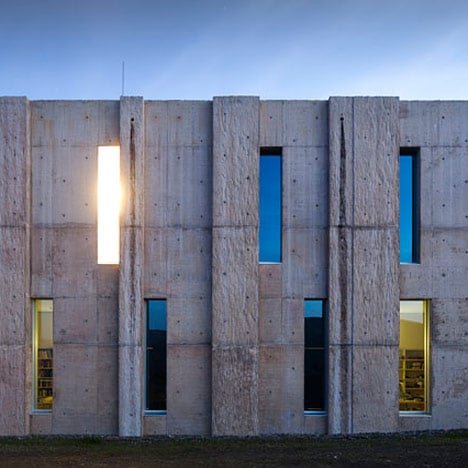
Museu de Foz Coa by Camilo Rebelo and Tiago Pimentel
Architectural photographer Nelson Garrido has sent us these photographs of a museum with a carved stone facade in the Côa Valley, Portugal, designed by Portuguese architects Camilo Rebelo and Tiago Pimentel.
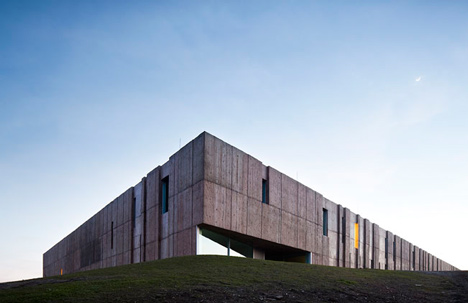
Located on a world heritage site with impressive mountain scenery, Museu de Foz Coa displays local Paleolithic art.
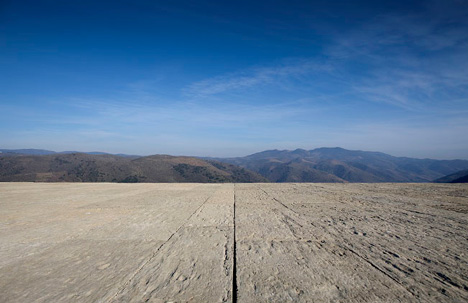
The interior walls of the museum are of exposed concrete, with light reflected around the spaces by triangular mirrors.
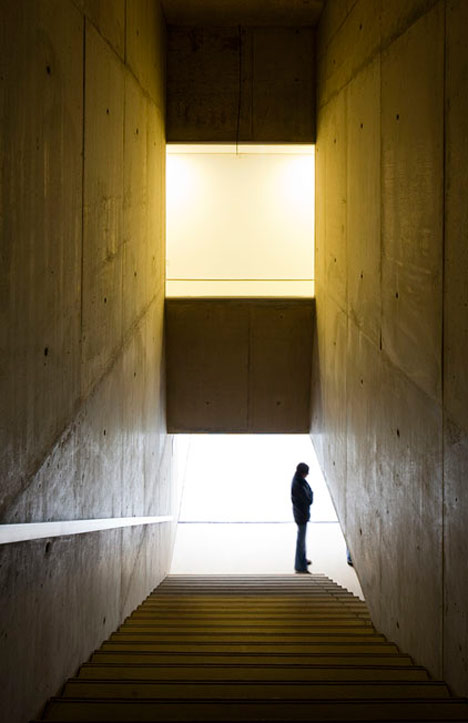
More photography by Nelson Garrido on Dezeen »
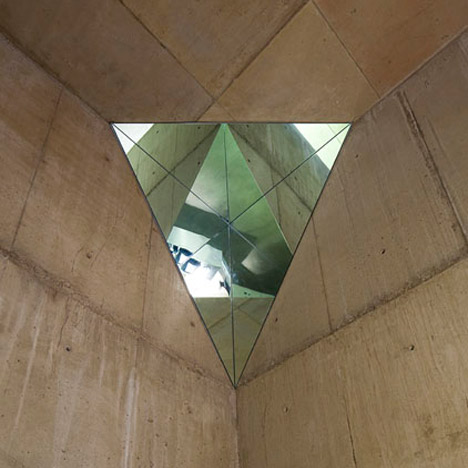
More stories about museums on Dezeen »
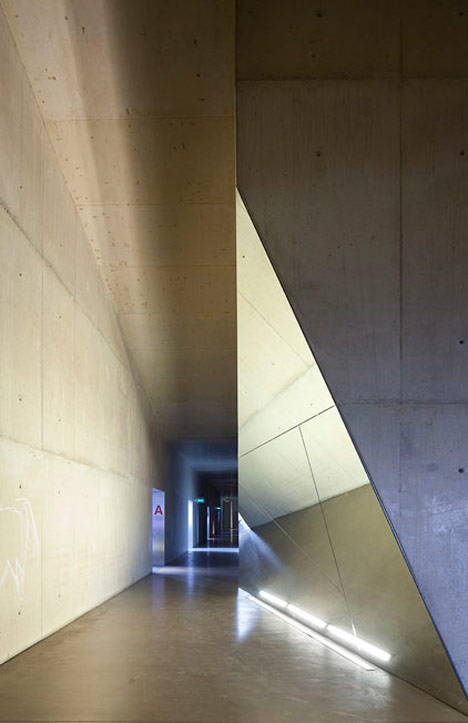
Here is some more information from the architects:
The Museum of Art and Archaeology of the Côa Valley, by Camilo Rebelo and Tiago Pimentel, two young Portuguese architects, was built to hold and promote Paleolithic art discovers in Côa Valley.
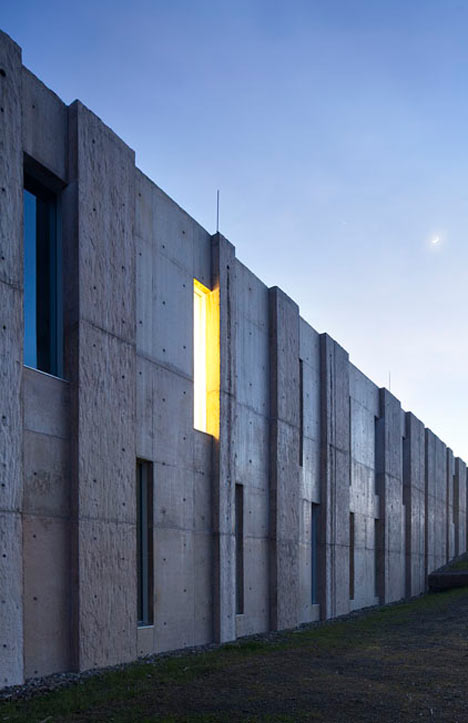
Being perhaps man’s first land art manifestation, Côa engravings were classified as World Heritage Site in December 1998.
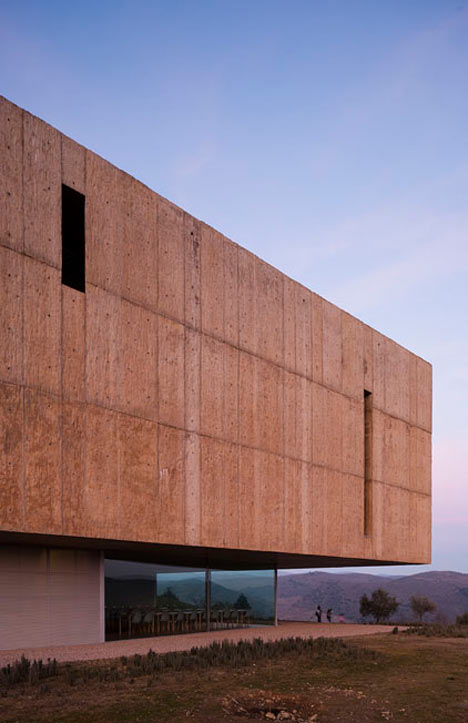
The Museum design concept starts with the idea of conceiving a museum as an “installation on the landscape”.
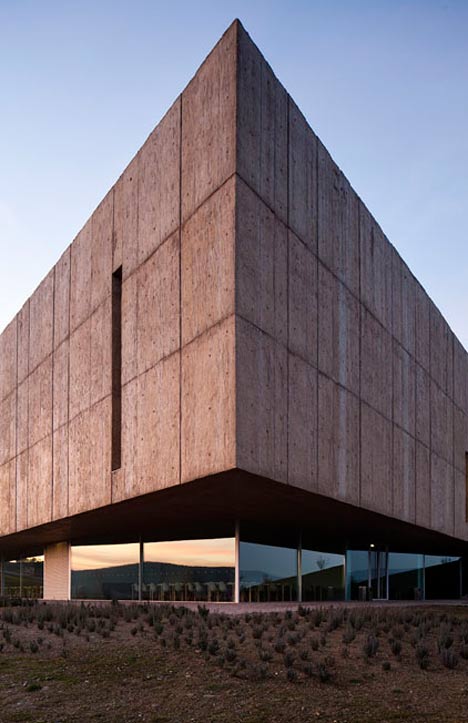
Like a “stone carved in the landscape” with a monolithic triangular shape which results directly from the valley’s confluences, the building resembles an aircraft carrier.
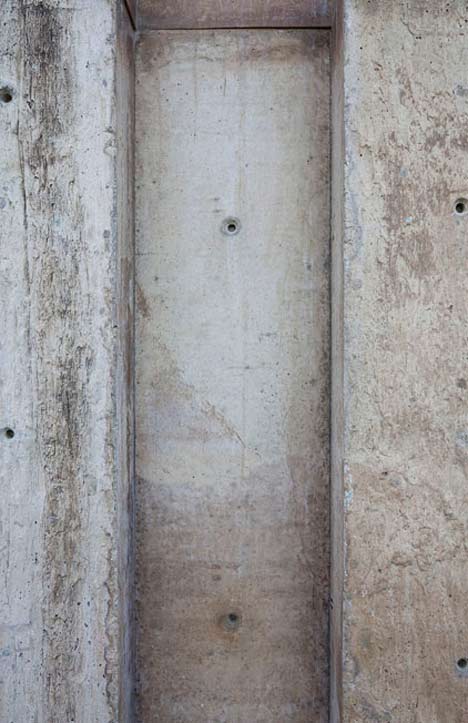
The museum entrance platform was conceived as a contemplation moment of the awesome and impressive scenery of mountains, valleys and Douro and Côa rivers.
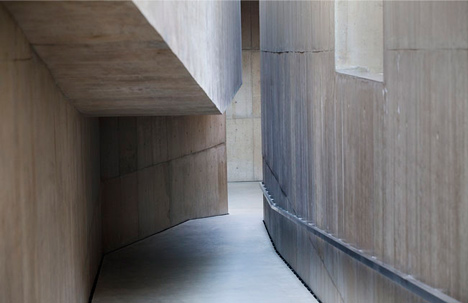
In the interior spaces the architects further developed the concept of “carved stone” creating pathways and spaces that evokes the ambience and intimacy of caves in which light and possible visual relations with the outside appear in a timely and unexpected way.
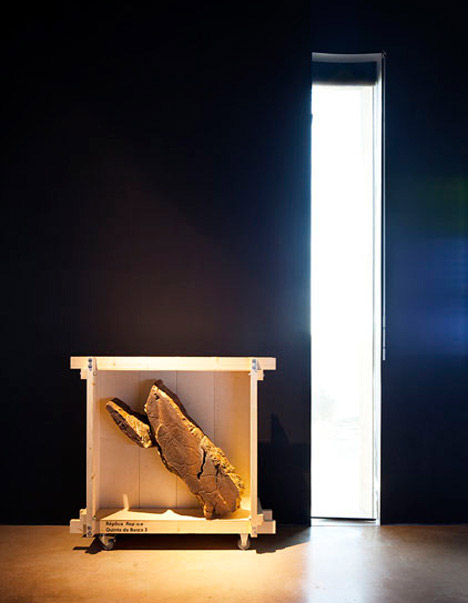
The joint between the concrete and the local stone’s texture and color, using concrete made with shale pigment of local stone, was the solution found to materialize the concept of “stone carved in the landscape” giving the museum building the expression of a rock which is integrated and makes itself part of the landscape.